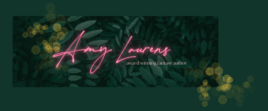There’s a lot of emphasis in the fantasy genre as a whole on words and language. You have magic systems based on words, you have made-up languages that embody the culture of the people who speak them – and you have names. Often, you have True Names, which are different from ordinary, everyday names because they have Power. The name of the thing is the essence of the thing, and to call something by its essence is to have absolute power over it.
I was thinking about this the other day, prompted by an old post over on A Nudge In The Right Direction. I have a major in linguistics from university, so have a bit of experience with languages and language and the concepts thereof.
Throughout history there have been many theories of art: art imitates nature, nature imitates art, art should imitate (or at least represent) nature, art is art for art’s sake. In the late eighteen hundreds the work of a Swiss linguist called Ferdinand de Saussure changed the way many people thought about the interplay between art and nature, and linguists worldwide began to question and explore the idea of the word as representative of reality.
For centuries it had been assumed that language was in some way mimetic or representative of reality – the term ‘dog’ was fundamentally doggy, ‘tree’ was fundamentally treey, etc. But Saussure said that there could be no relationship between a word and reality apart from arbitrariness, principally because if there was some sort of mimetic connection, then all languages would have similar sounding words for similar concepts – and they don’t.
There’s a lot more to his theory, of course, but I’m trying to keep this non-technical. If you’re interested, I’d be happy to expound; it’s relevant to the fantasy genre generally and to anywhere you’re using made-up words specifically. But for now, assuming that Saussure is correct and that there are no necessary connections between things and the sounds we use to represent them, let’s examine some of the issues this raises for the ‘true language’ idea.
To say there is one ‘true’ language necessarily disparages all other languages. All other languages are not true, which is to say they are lies…
And who’s to say which is the true language? Different ethnic and/or religious groups might reasonably claim that they alone have the true language, and that all other languages are impure, and the people who speak them unclean or infidels. Which leads to language stagnation, where languages refuse to invent or borrow new words for new concepts because that would mean corrupting the language – and this of course leads to societal stagnation, for a language that allows no new concepts will not support a changing society…
And yet despite all this, fantasy still insists on a true language. The world called into existence by a single word or phrase, the breath of some Creator, a sound that resonates throughout all creation and lends it Power, names that have the power to bind a person and their soul, to call up the dead, the capture immorals and trap them to one’s will…
Where does our fascination with this come from? And why is it that characters are so much easier to write once we’ve named them, and so impossible to write when they have the wrong name? Are the two connected? How? Why? What is it we’re seeking when we long for a language that is true, and pure, and power?
Things unnamed are things forgotten and unimportant ~ Michelle Argyle.
